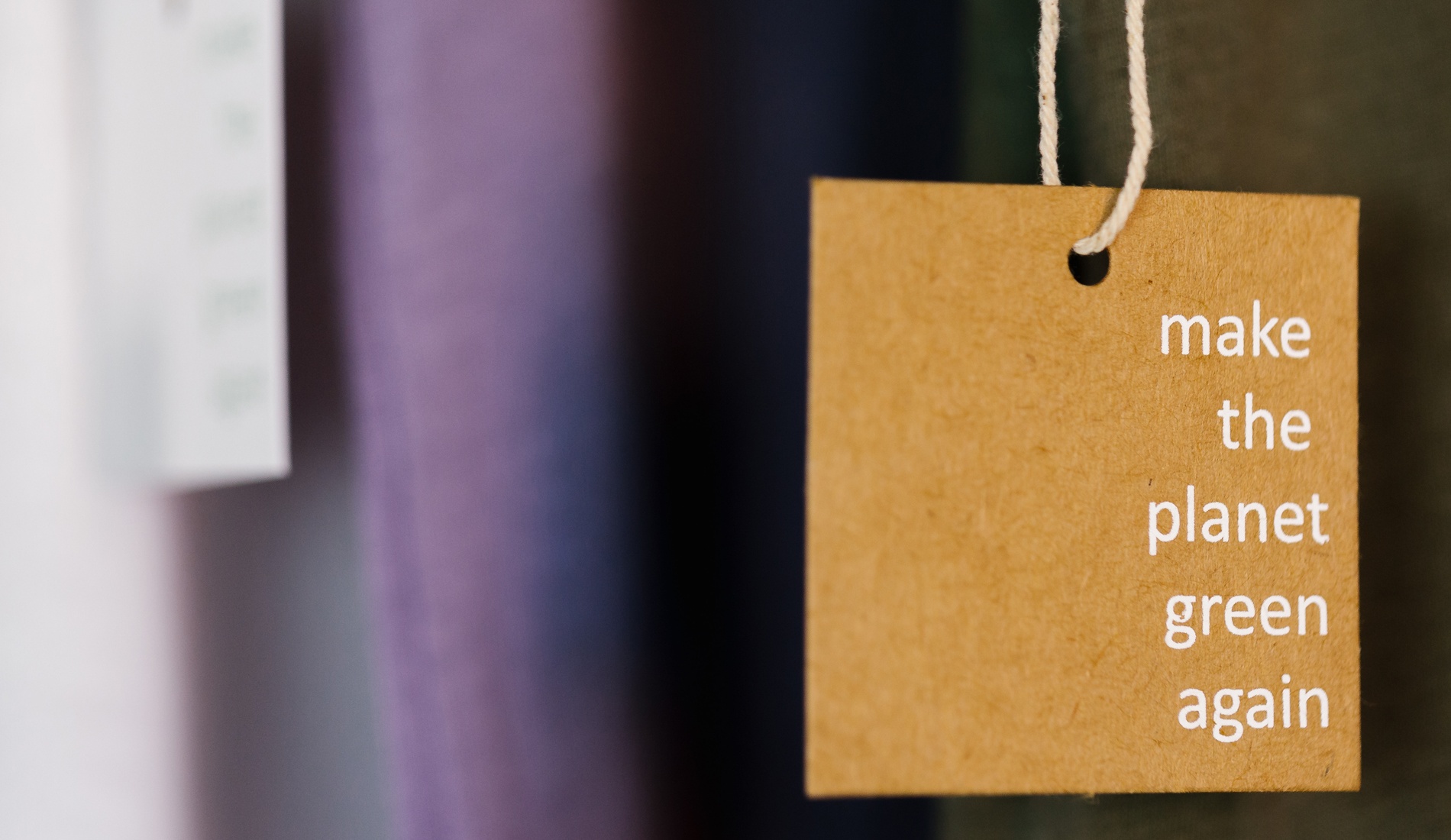
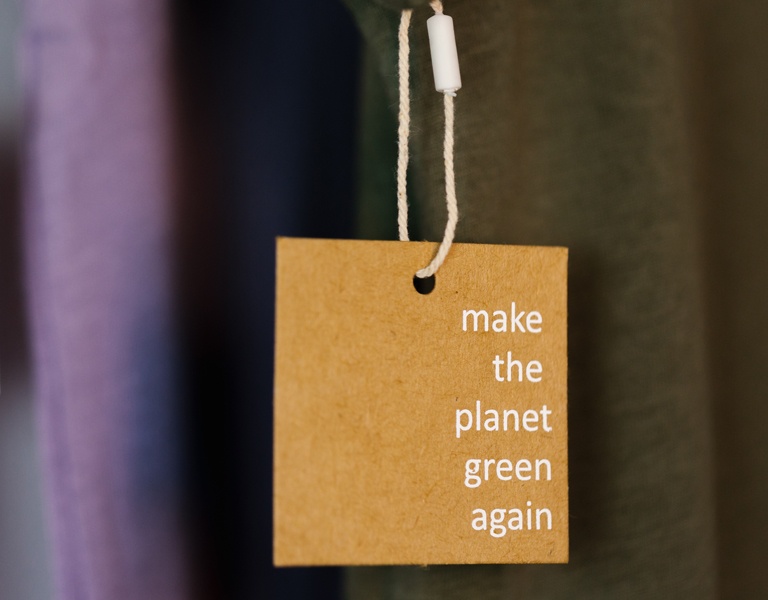

Introduction
Although small and at times unnoticeable, the labels and components found in our garments play a vital role but can still have a significant environmental impact.
Commonly used base materials pose a risk to the environment from microplastic shedding and the extraction of fossil fuels to energy and water intensive manufacturing.
If not removed, they can also prevent garments from being recycled at the end-of-life. Read more in: Design Lessons for Disassembly.
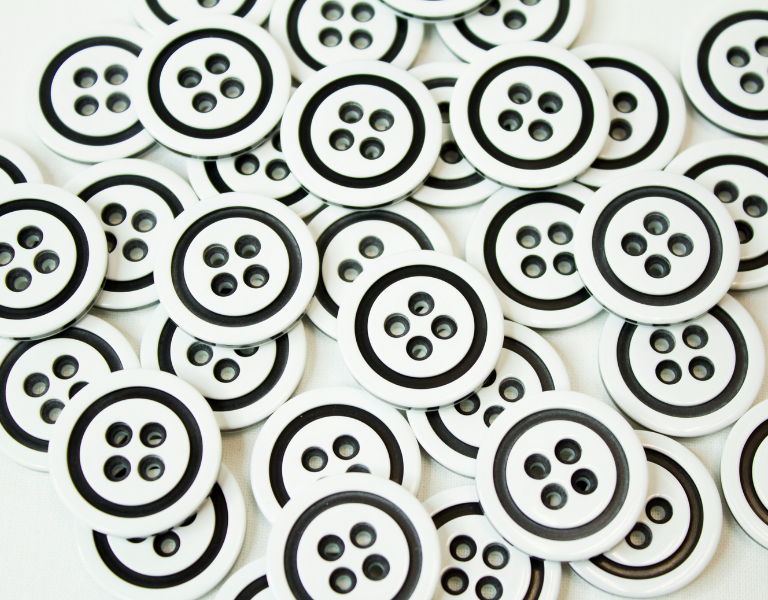
Introduction
Although small and at times unnoticeable, the labels and components found in our garments play a vital role but can still have a significant environmental impact.
Commonly used base materials pose a risk to the environment from microplastic shedding and the extraction of fossil fuels to energy and water intensive manufacturing.
If not removed, they can also prevent garments from being recycled at the end-of-life. Read more in: Design Lessons for Disassembly.

Environmental impact
Metals such as brass, copper or steel each come with a range of impacts from the use of heavy metals to energy-intensive manufacturing and heavy water usage.
While polyester components are non-biodegradable, energy-intensive to make and use extractive fossil fuels. See Fibre Briefing: Polyester
Cotton is also used widely for labels but again, this fibre comes at an environmental and social cost. To find out more read our Fibre Briefing: Cotton.

Environmental impact
Metals such as brass, copper or steel each come with a range of impacts from the use of heavy metals to energy-intensive manufacturing and heavy water usage.
While polyester components are non-biodegradable, energy-intensive to make and use extractive fossil fuels. See Fibre Briefing: Polyester
Cotton is also used widely for labels but again, this fibre comes at an environmental and social cost. To find out more read our Fibre Briefing: Cotton.

What are the solutions?
Eliminate or reduce the size and number of labels and components that you use per design will make recycling at end-of-life easier.
Using mono materials aids recyclability. For example, YKK has produced the DP300 nylon snap button to be used on nylon garments to facilitate easier recyclability. Look to Italian outwear brand Napapijri which has created an entire jacket made from one polymer.
Lastly, source more sustainable alternatives such as recycled brass fastenings, organic cotton and recycled polyester labels.
Image: Napapijri

What are the solutions?
Eliminate or reduce the size and number of labels and components that you use per design will make recycling at end-of-life easier.
Using mono materials aids recyclability. For example, YKK has produced the DP300 nylon snap button to be used on nylon garments to facilitate easier recyclability. Look to Italian outwear brand Napapijri which has created an entire jacket made from one polymer.
Lastly, source more sustainable alternatives such as recycled brass fastenings, organic cotton and recycled polyester labels.
Image: Napapijri

ITL Group
International apparel labelling company ITL Group specialises in sustainable labelling for the fashion industry by using innovative technologies and materials.
The ITL Group offers labels made from 100% GRS certified polyester from post-consumer waste, Tencel and organic cotton as well as recycled nylon made from production waste.
The intelligen™ system developed by the ITL Group also ensures that the size of the label is adjusted to fit more on a sheet or loom resulting in minimal waste and cost savings.
Image: ITL Group
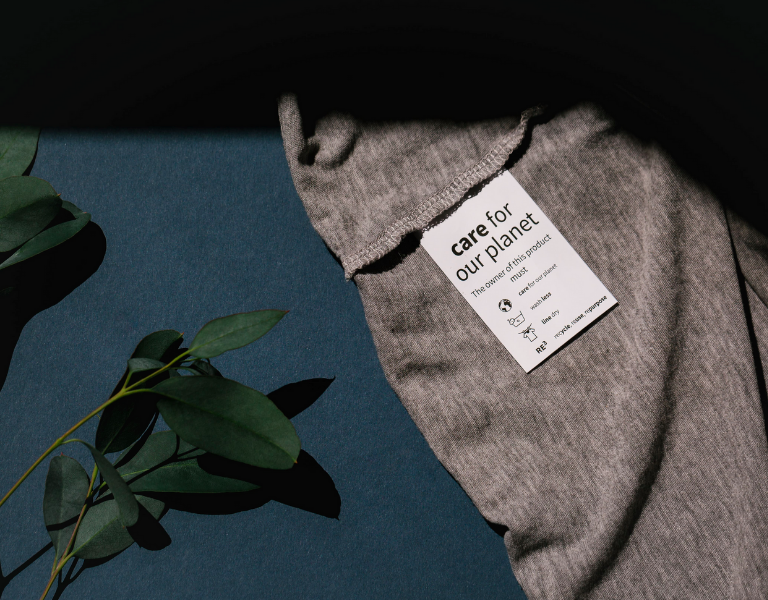
ITL Group
International apparel labelling company ITL Group specialises in sustainable labelling for the fashion industry by using innovative technologies and materials.
The ITL Group offers labels made from 100% GRS certified polyester from post-consumer waste, Tencel and organic cotton as well as recycled nylon made from production waste.
The intelligen™ system developed by the ITL Group also ensures that the size of the label is adjusted to fit more on a sheet or loom resulting in minimal waste and cost savings.
Image: ITL Group
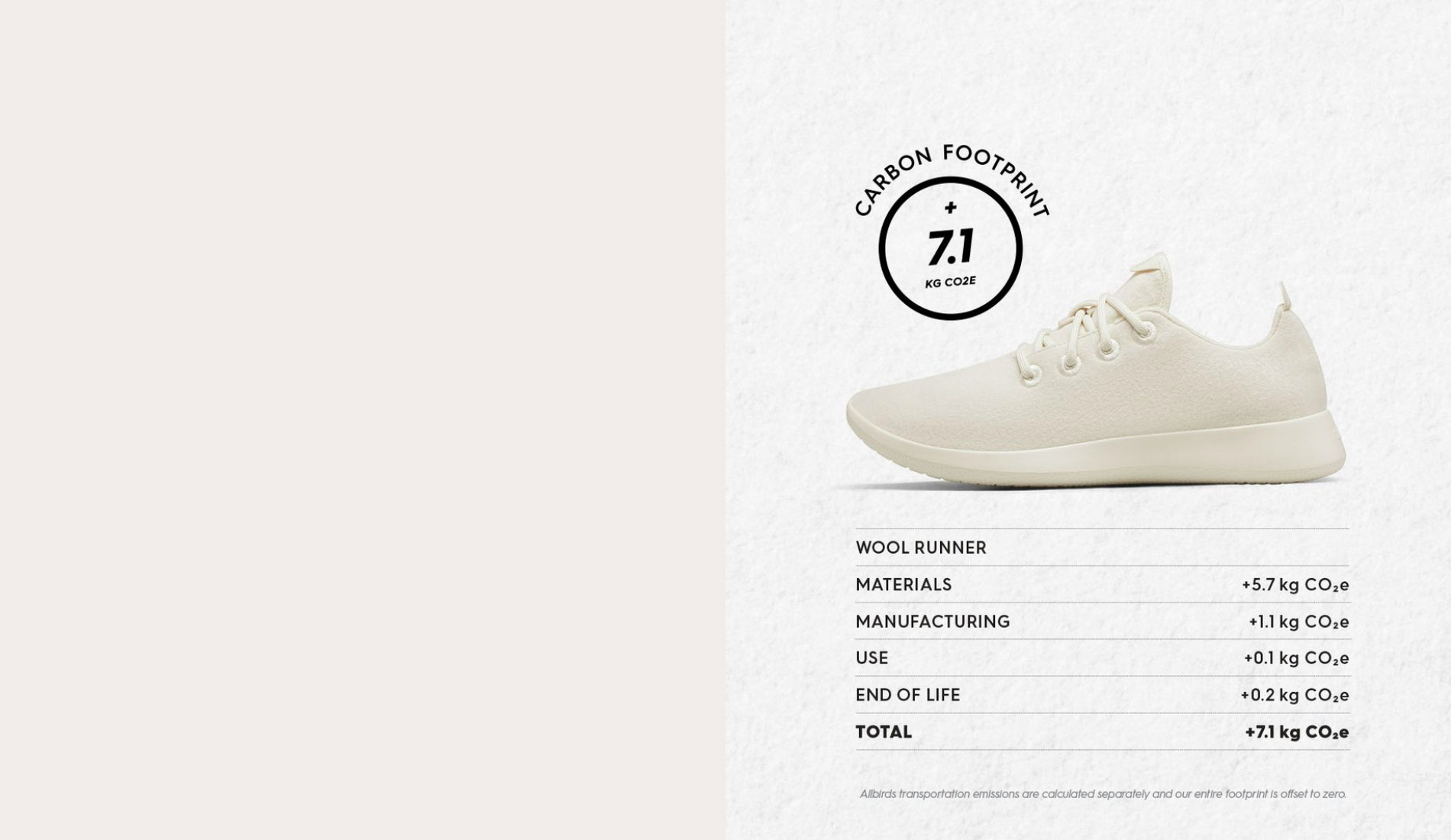
Carbon Labelling
We are also seeing a small but growing trend of labels revealing the carbon footprint of the product. US sneaker brand AllBirds, for example, now brands each product they make with a number indicating the CO2 emitted to create each product.
Likewise, H&M is sharing a scorecard rating based on Higg Index data for a small range of its products detailing the product’s carbon footprint.
Image: Allbirds
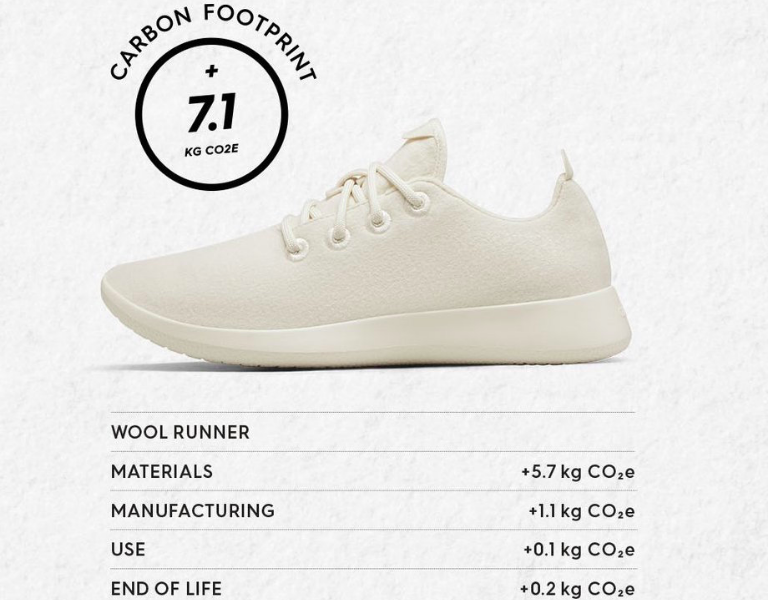
Carbon Labelling
We are also seeing a small but growing trend of labels revealing the carbon footprint of the product. US sneaker brand AllBirds, for example, now brands each product they make with a number indicating the CO2 emitted to create each product.
Likewise, H&M is sharing a scorecard rating based on Higg Index data for a small range of its products detailing the product’s carbon footprint.
Image: Allbirds
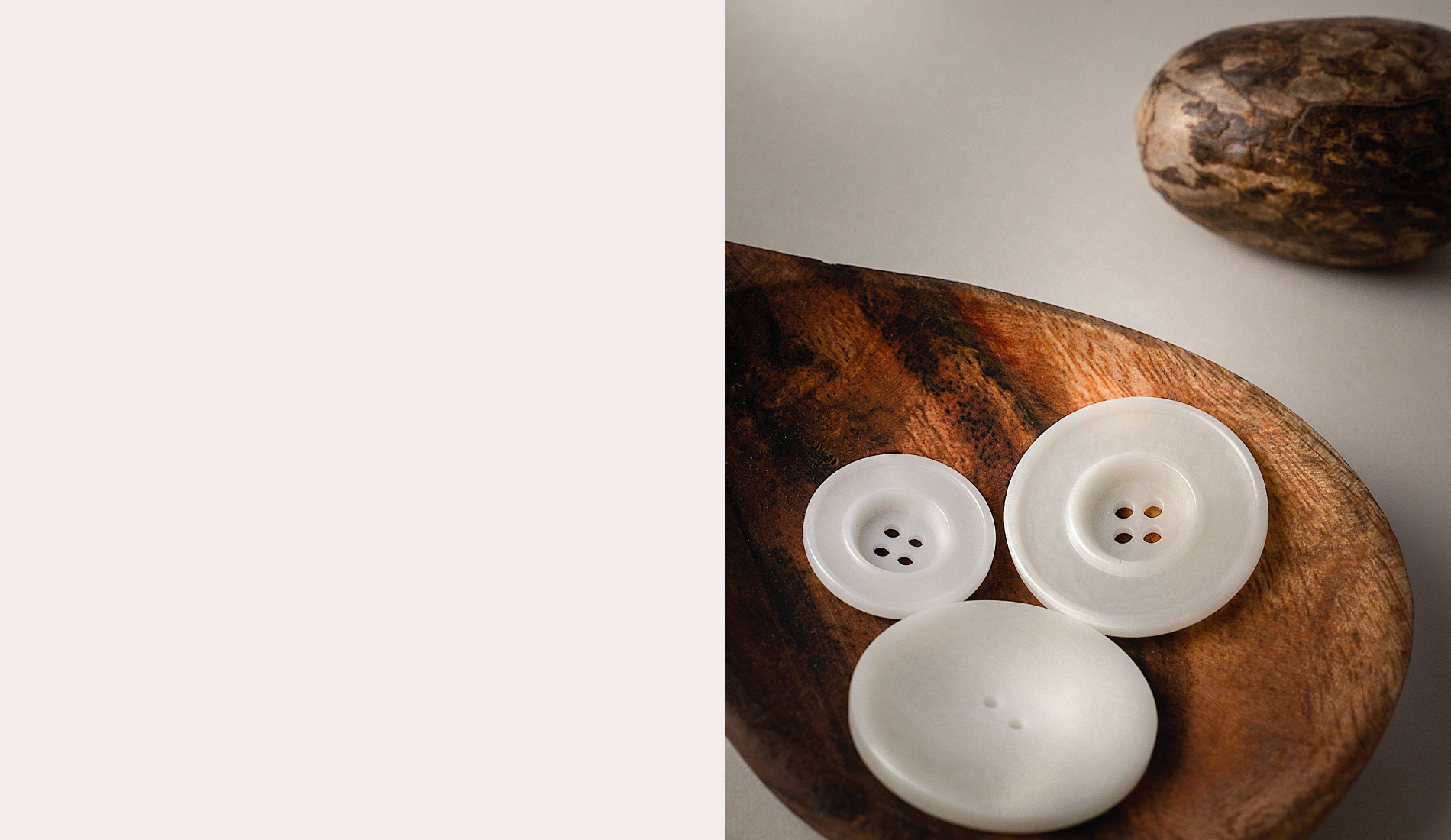
Corozo buttons
Corozo buttons made from the tagua nut, the seed of a tropical palm can withstand being cut, machined, heated, bleached, and polished.
Initiatives to support the communities who cultivate tagua nuts include Forever Lung, an NGO, founded by Ecuadorian manufacturer Trafino S.A. which also works to protect the local rainforest where the nuts are grown.
Yee Fung Hong offer corozo and recycled eco-rozo trims, created by reutilizing tagua leftover from production. As do Corectagua and Corne & Corozo Réunis.
Image: Corne & Corozo Réunis
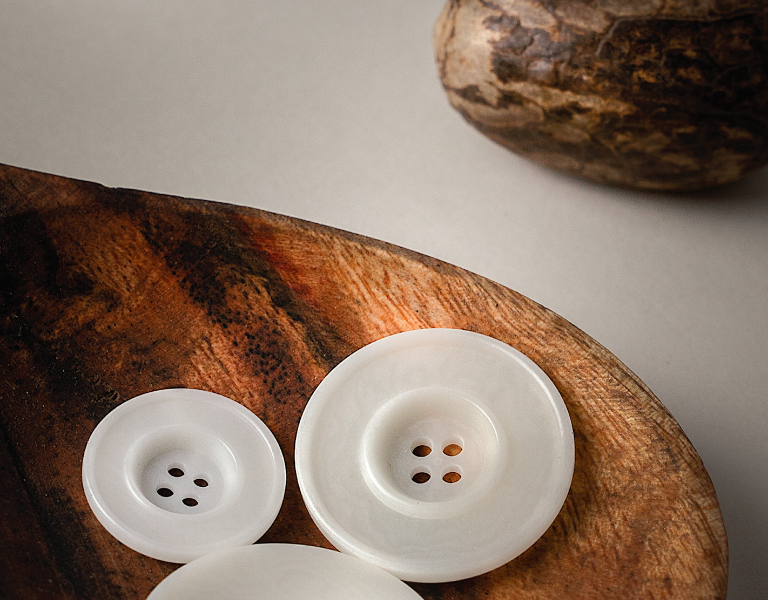
Corozo buttons
Corozo buttons made from the tagua nut, the seed of a tropical palm can withstand being cut, machined, heated, bleached, and polished.
Initiatives to support the communities who cultivate tagua nuts include Forever Lung, an NGO, founded by Ecuadorian manufacturer Trafino S.A. which also works to protect the local rainforest where the nuts are grown.
Yee Fung Hong offer corozo and recycled eco-rozo trims, created by reutilizing tagua leftover from production. As do Corectagua and Corne & Corozo Réunis.
Image: Corne & Corozo Réunis

Horn buttons
Historically, horn is one of the first materials used to make garment components.
Horn can be obtained from a variety of animals such as water buffaloes, cattle, sheep and deer as a waste product recycled from the food industry. It is an extremely durable material.
Corne & Corozo Réunis offer a selection of horn buttons. Compagnie Francaise du Button works predominantly with natural materials including shell, horn, bone and wood. As too does the SAB-Weixing Group.
Image: Corne & Corozo Réunis
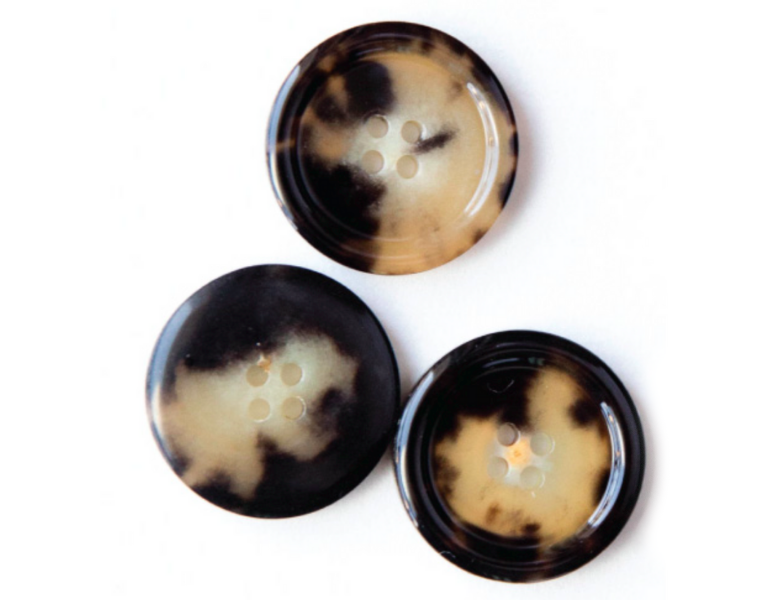
Horn buttons
Historically, horn is one of the first materials used to make garment components.
Horn can be obtained from a variety of animals such as water buffaloes, cattle, sheep and deer as a waste product recycled from the food industry. It is an extremely durable material.
Corne & Corozo Réunis offer a selection of horn buttons. Compagnie Francaise du Button works predominantly with natural materials including shell, horn, bone and wood. As too does the SAB-Weixing Group.
Image: Corne & Corozo Réunis
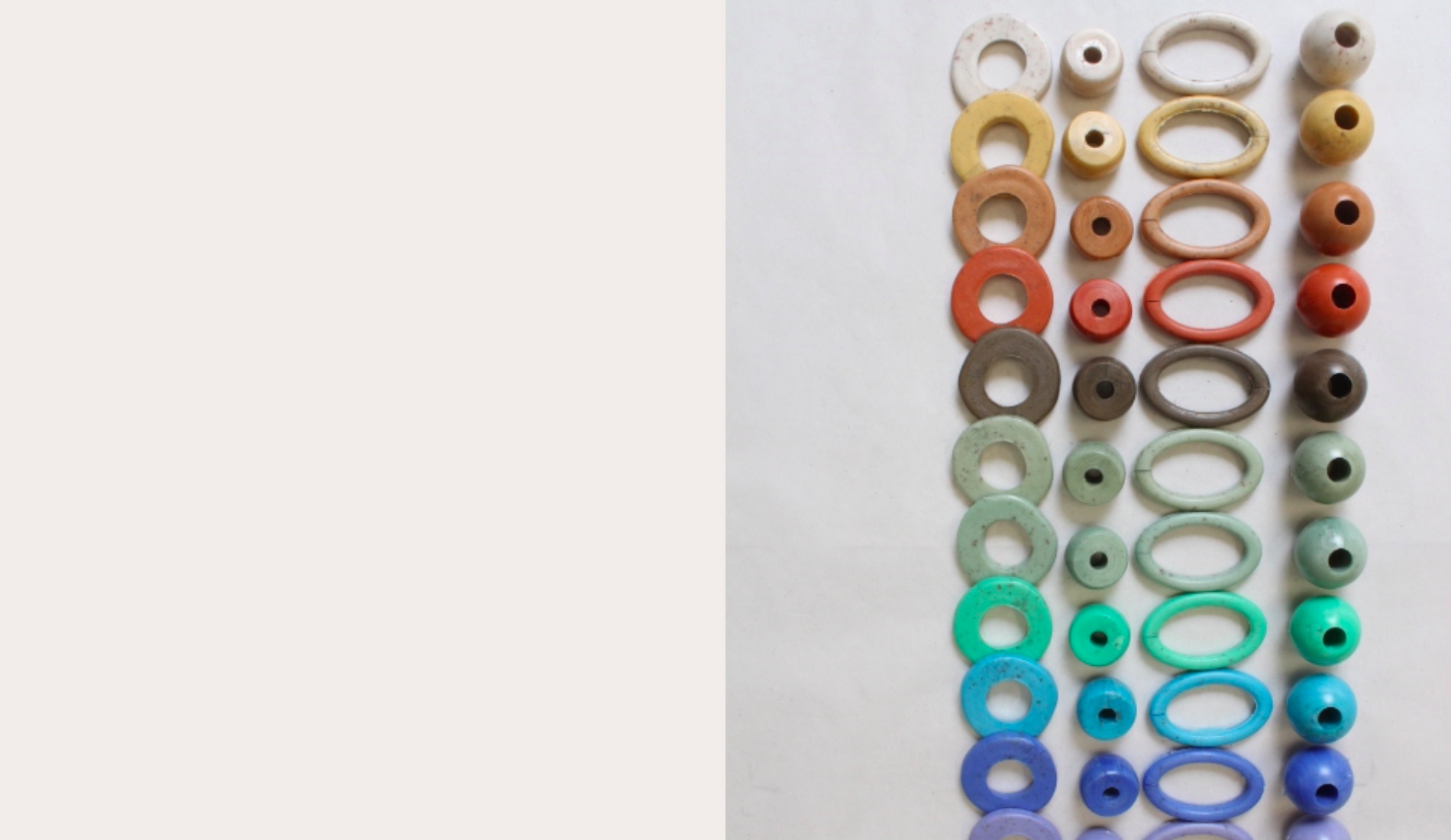
Synthetic components
FM Buttons manufacture alternatives to standard polyester as a raw material and instead offer recycled polyester, paper and cotton buttons to name but a few. Italian company Berbrand produce buttons made from recycled materials, carbon fibre and urea. While Italian supplier Valter offers components in bioplastic.
Cabosa Group has manufactured their own material Reeco, made from recycled polyester. And Oceanworks have created recycled plastic buttons made purely from plastic collected in oceans.
Image: Valter
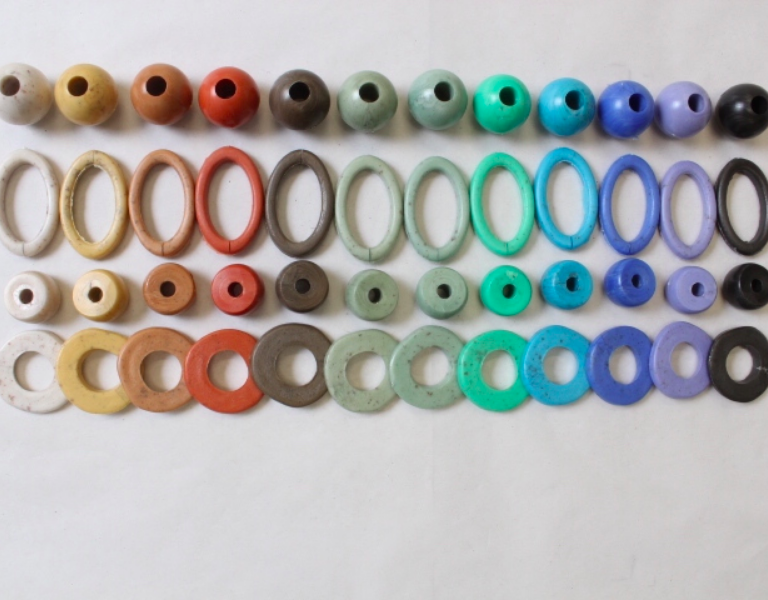
Synthetic components
FM Buttons manufacture alternatives to standard polyester as a raw material and instead offer recycled polyester, paper and cotton buttons to name but a few. Italian company Berbrand produce buttons made from recycled materials, carbon fibre and urea. While Italian supplier Valter offers components in bioplastic.
Cabosa Group has manufactured their own material Reeco, made from recycled polyester. And Oceanworks have created recycled plastic buttons made purely from plastic collected in oceans.
Image: Valter
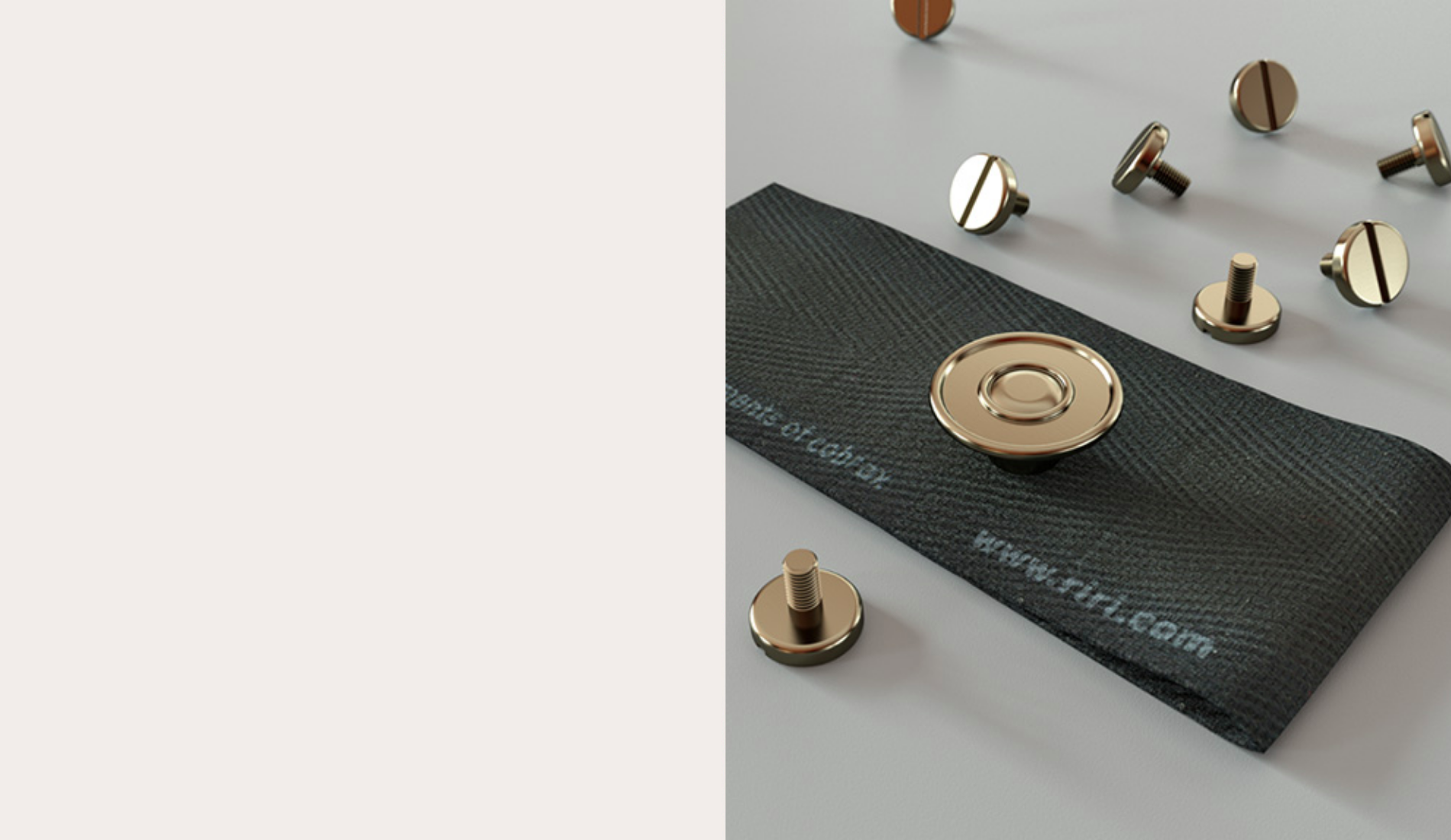
Metal rivets and fastenings
Prym Fashion offers L.I.F.E. certified fasteners, in metal and plastic. These fasteners are manufactured with less harmful substances, less material inputs, no heavy metals and low energy consumption. They are also recyclable, allowing them to enter closed loop, circular economy programs.
Additionally, check out our members YKK Fastenings for sustainable components and Dorlet for metal trims. And Riri for easy to disassemble screw jeans buttons made from at least 50% recycled brass.
Image: Riri
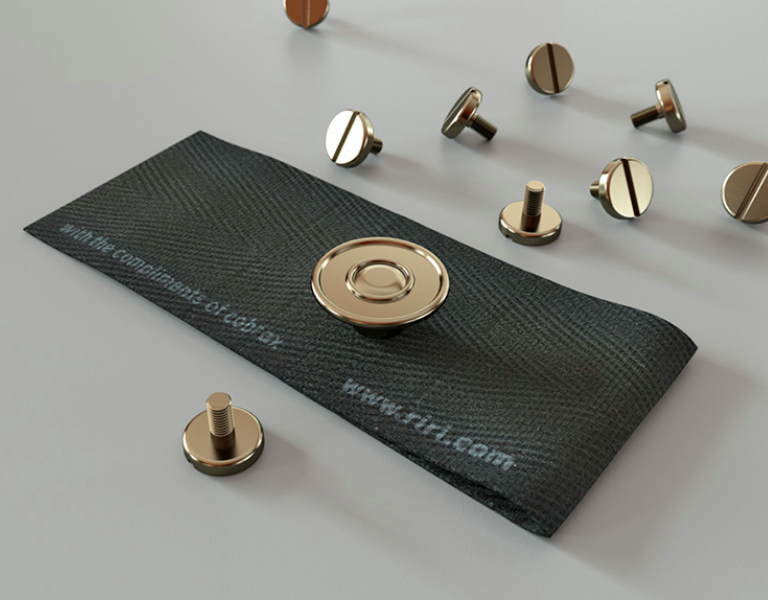
Metal rivets and fastenings
Prym Fashion offers L.I.F.E. certified fasteners, in metal and plastic. These fasteners are manufactured with less harmful substances, less material inputs, no heavy metals and low energy consumption. They are also recyclable, allowing them to enter closed loop, circular economy programs.
Additionally, check out our members YKK Fastenings for sustainable components and Dorlet for metal trims. And Riri for easy to disassemble screw jeans buttons made from at least 50% recycled brass.
Image: Riri
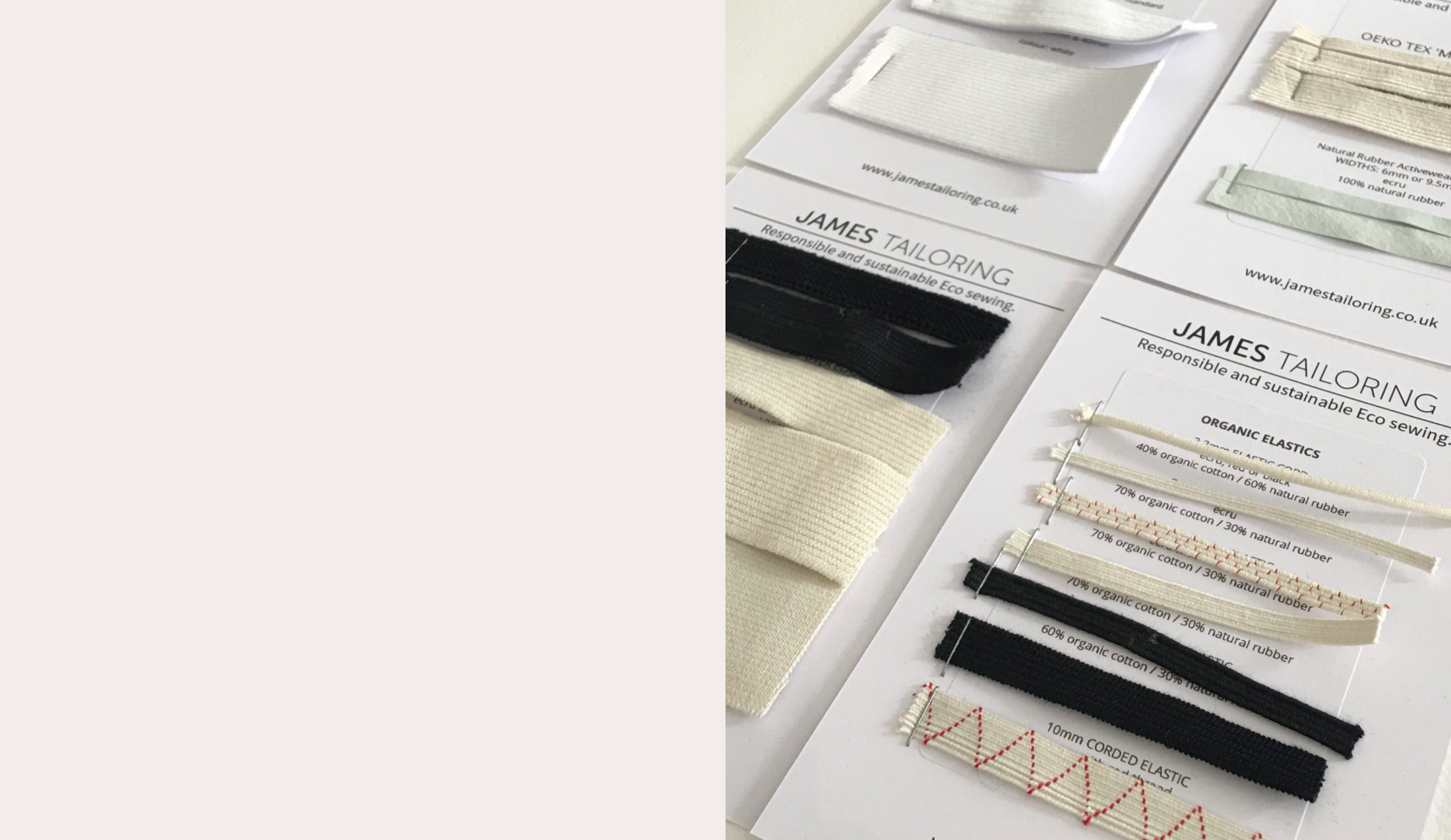
Organic cotton elastics
Organic cotton and natural rubber offer an alternative to polyester elastic. Natural rubber is produced from the cultivation of the Hevea Brasiliensis tree, originating from South America and has the widest range of hardness.
UK based James Tailoring offers GOTS and Oeko-Tex certified organic elastics and threads. As does Charle Berlin.
Image: James Tailoring
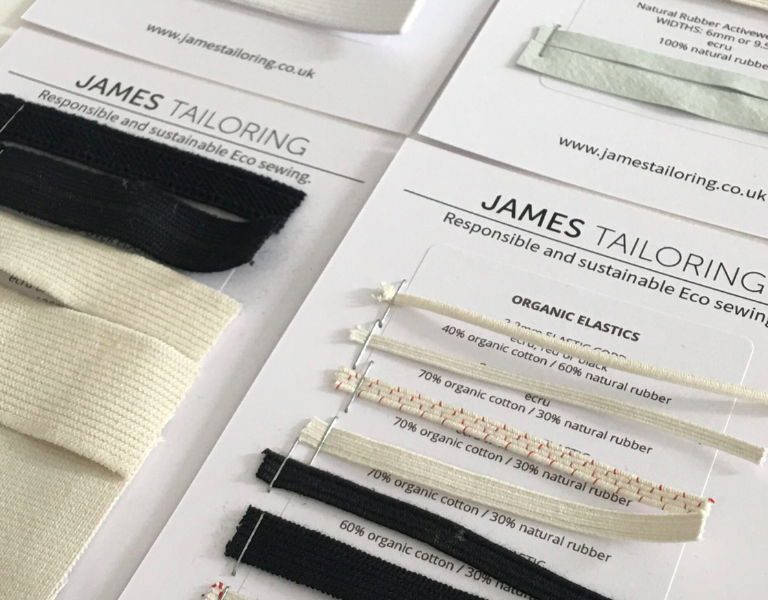
Organic cotton elastics
Organic cotton and natural rubber offer an alternative to polyester elastic. Natural rubber is produced from the cultivation of the Hevea Brasiliensis tree, originating from South America and has the widest range of hardness.
UK based James Tailoring offers GOTS and Oeko-Tex certified organic elastics and threads. As does Charle Berlin.
Image: James Tailoring

Ribbons, bindings and decorative trims
Award-winning French ribbon manufacturer Armor manufactures ribbons without the need for solvents using its SolFree process.
Italian supplier Fashion Tex uses exclusively certified yarns for their wide range of ribbons, labels and embroidered patches. Amandine Cha offers organic bias binding and piping.
And fellow Italian supplier Duesse SRL uses recyclable, reusable and natural materials such as self-produced paper from production waste for their fabric tapes and emblems.
Image: Amandine Cha
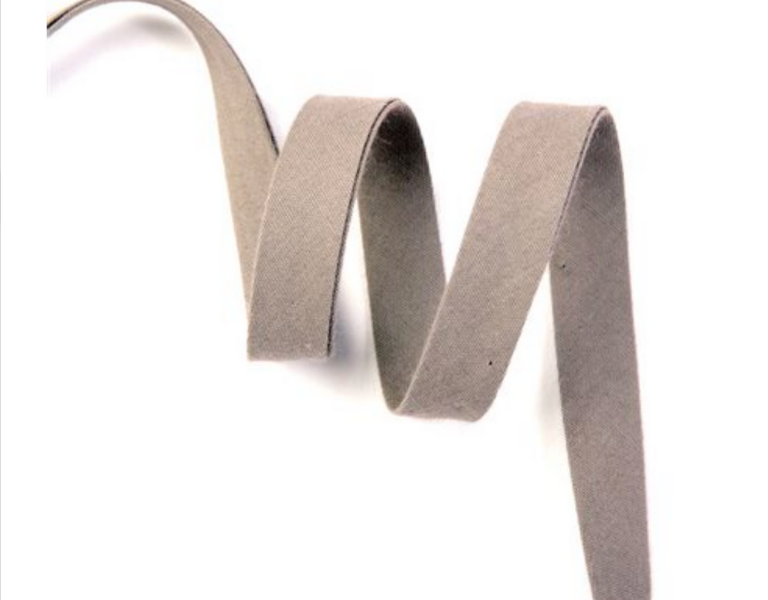
Ribbons, bindings and decorative trims
Award-winning French ribbon manufacturer Armor manufactures ribbons without the need for solvents using its SolFree process.
Italian supplier Fashion Tex uses exclusively certified yarns for their wide range of ribbons, labels and embroidered patches. Amandine Cha offers organic bias binding and piping.
And fellow Italian supplier Duesse SRL uses recyclable, reusable and natural materials such as self-produced paper from production waste for their fabric tapes and emblems.
Image: Amandine Cha


Sign up to connect with 50,000+ other sustainability-minded professionals and access over 300 pieces of actionable intelligence.
Common Objective is a global sourcing and information network that enables you to succeed in sustainable fashion business.

